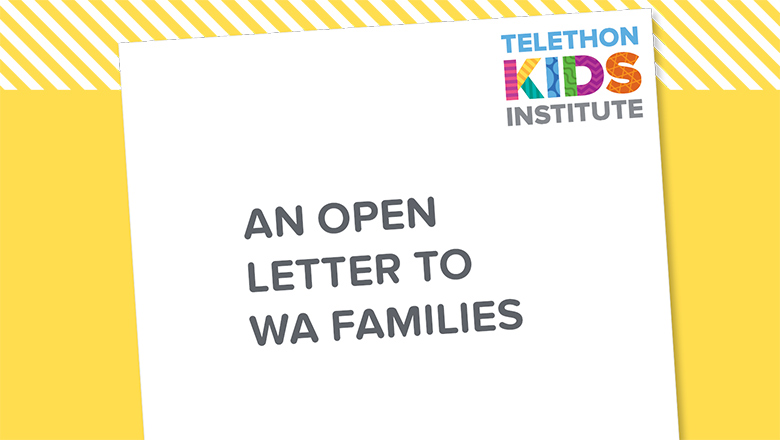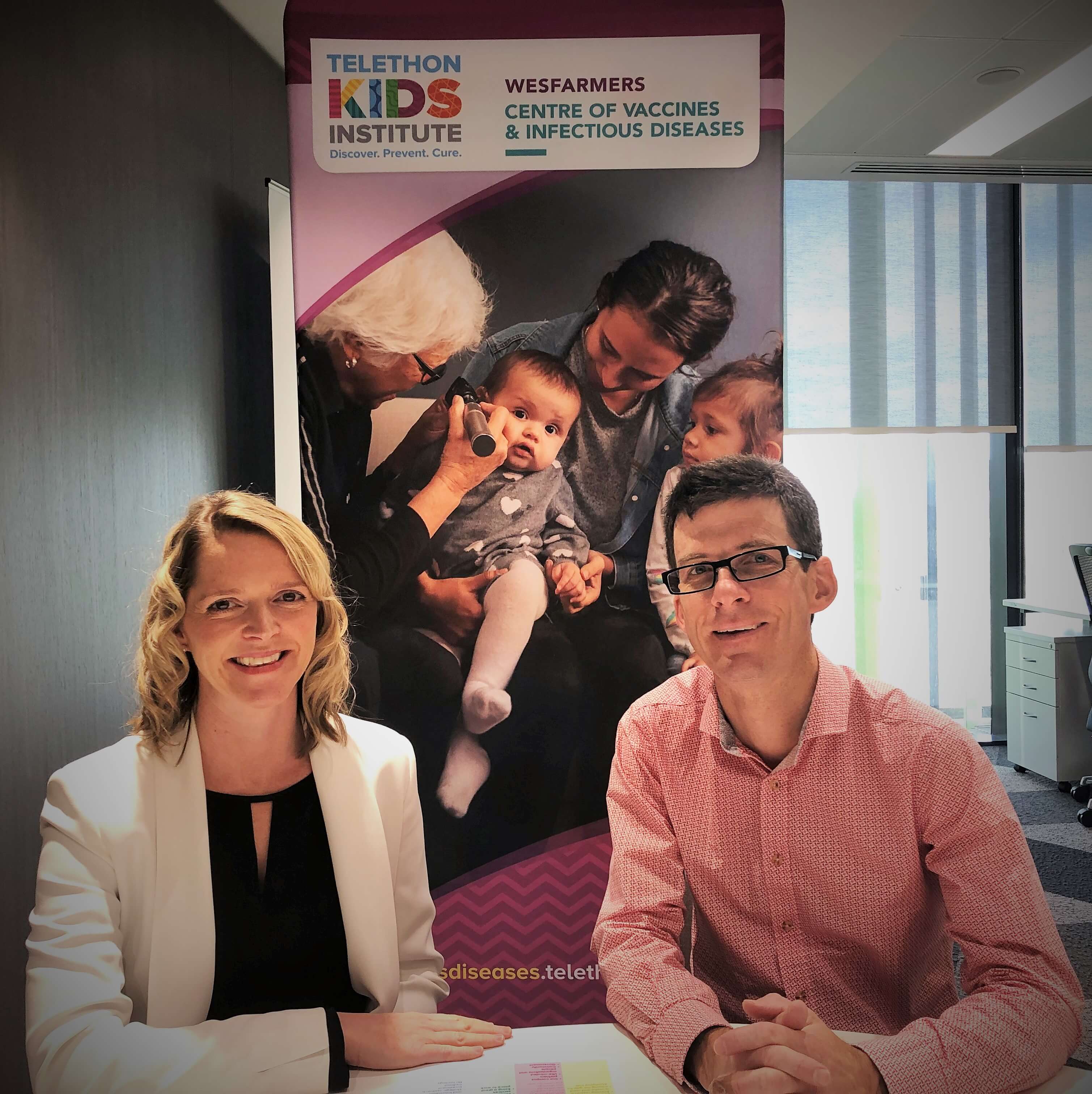Search
Showing results for "Au"
Research
SNAP-PYThere are an estimated 5000 episodes per year of bloodstream infections due to Staphylococcus aureus (golden staph) in Australia and an associated mortality of 20%. Despite this, there is little clinical trials evidence to guide best management.
Research
Sport in First-episode PsychosisYael Perry BPsych (Hons) MPsych (Clin) PhD Head, Youth Mental Health 08 6319 1298 yael.perry@thekids.org.au Head, Youth Mental Health @yaelperry she/
Research
The NICE GUT TrialTom Snelling BMBS DTMH GDipClinEpid PhD FRACP Head, Infectious Disease Implementation Research 08 6319 1817 tom.snelling@thekids.org.au Head,
Research
Colostrum, the missing link for healthy growthValerie Verhasselt MD, PhD Head, Immunology and Breastfeeding 0402997617 Valerie.verhasselt@thekids.org.au Head, Immunology and Breastfeeding @
Research
Electronic Use in Little Ones (EUiLO)Mary Brushe BPsych(Hons), PhD (Public Health) Senior Research Officer, Epidemiology mary.brushe@thekids.org.au Senior Research Officer, Epidemiology

News & Events
Trans Pathways researcher recognised as one of Australia’s Tomorrow MakersYouth mental health researcher Penelope Strauss has been named an AMP Tomorrow Maker – the first researcher from The Kids Research Institute Australia to win one of the annual AMP Foundation grants.

News & Events
An open letter to WA familiesMy colleagues and I at Perth's The Kids Research Institute Australia study how to make current vaccines work better, reduce common side effects, and develop new vaccines.

News & Events
The Kids Research Institute Australia Open DayFriends and supporters of The Kids Research Institute Australia are invited to join us to celebrate 25 years of making a difference to kids' health at our Open Day.
News & Events
Watch out Super Nanny - Australian parents are doing it for themselves!The first large scale scientific evaluation of group-based positive parenting programs has found that the intervention reduces behavioural problems

News & Events
New Co-directors for the Wesfarmers Centre of Vaccines and Infectious DiseasesDr Lea-Ann Kirkham and Dr Chris Blyth have been appointed as Co-Directors
